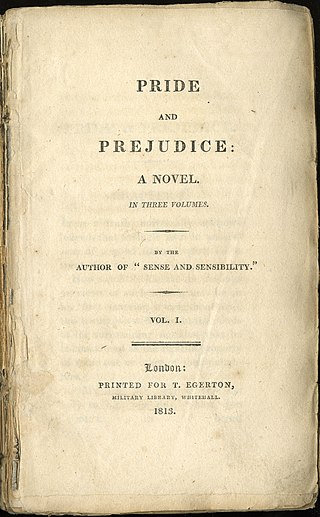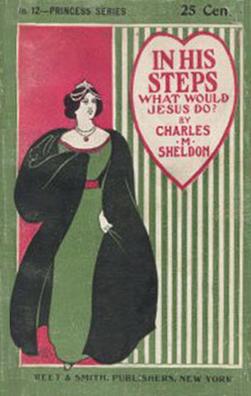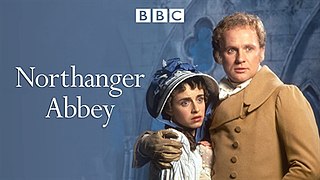
Pride and Prejudice is the second novel by English author Jane Austen, published in 1813. A novel of manners, it follows the character development of Elizabeth Bennet, the protagonist of the book, who learns about the repercussions of hasty judgments and comes to appreciate the difference between superficial goodness and actual goodness.

Sense and Sensibility is the first novel by the English author Jane Austen, published in 1811. It was published anonymously; By A Lady appears on the title page where the author's name might have been. It tells the story of the Dashwood sisters, Elinor and Marianne as they come of age. They have an older half-brother, John, and a younger sister, Margaret.

The Heiress is a 1949 American romantic drama film directed and produced by William Wyler, from a screenplay written by Ruth and Augustus Goetz, adapted from their 1947 stage play of the same title, which was itself adapted from Henry James' 1880 novel Washington Square. The film stars Olivia de Havilland as Catherine Sloper, a naive young woman who falls in love with a handsome young man despite the objections of her emotionally abusive father who suspects the man of being a fortune hunter. Montgomery Clift stars as Morris Townsend, and Ralph Richardson as Dr. Sloper.

The History of Tom Jones, a Foundling, often known simply as Tom Jones, is a comic novel by English playwright and novelist Henry Fielding. It is a Bildungsroman and a picaresque novel. It was first published on 28 February 1749 in London and is among the earliest English works to be classified as a novel. It is the earliest novel mentioned by W. Somerset Maugham in his 1948 book Great Novelists and Their Novels among the ten best novels of the world.

The Age of Innocence is a 1920 novel by American author Edith Wharton. It was her eighth novel, and was initially serialized in 1920 in four parts, in the magazine Pictorial Review. Later that year, it was released as a book by D. Appleton & Company. It won the 1921 Pulitzer Prize for Fiction, making Wharton the first woman to win the prize. Though the committee had initially agreed to give the award to Sinclair Lewis for Main Street, the judges, in rejecting his book on political grounds, "established Wharton as the American 'First Lady of Letters'". The story is set in the 1870s, in upper-class, "Gilded Age" New York City. Wharton wrote the book in her 50s, after she was already established as a major author in high demand by publishers.

The Wings of the Dove is a 1902 novel by Henry James. It tells the story of Milly Theale, an American heiress stricken with a serious disease, and her effect on the people around her. Some of these people befriend Milly with honourable motives, while others are more self-interested.

Lady Susan is an epistolary novella by Jane Austen, possibly written in 1794 but not published until 1871. This early complete work, which the author never submitted for publication, describes the schemes of the title character.

Beatrice Whitney Straight was an American theatre, film and television actress and a member of the prominent Whitney family. She was an Academy Award and Tony Award winner as well as an Emmy Award nominee.

Can You Forgive Her? is a novel by Anthony Trollope, first published in serial form in 1864 and 1865. It is the first of six novels in the Palliser series, also known as the Parliamentary Novels.

In His Steps is a bestselling religious fiction novel written by Charles Monroe Sheldon. First published in 1896, the book has sold more than 50 million copies and ranks as one of the bestselling books of all time. The full title of the book is In His Steps: What Would Jesus Do?

Northanger Abbey is a 1987 made-for-television film adaptation of Jane Austen's 1817 novel Northanger Abbey, and was originally broadcast on the A&E Network and the BBC on 15 February 1987. It is part of the Screen Two anthology series.

The Small Bachelor is a novel by P. G. Wodehouse, first published in the United Kingdom on 28 April 1927 by Methuen & Co., London, and in the United States on 17 June 1927 by George H. Doran, New York.

Quick Service is a novel by P. G. Wodehouse, first published in the United Kingdom on 4 October 1940 by Herbert Jenkins, London and in the United States on 27 December 1940 by Doubleday, Doran, New York.

The Woman in White is Wilkie Collins's fifth published novel, written in 1860 and set from 1849 to 1850. It started its publication on 26 November 1859 and its publication was completed on 25 August 1860. It is a mystery novel and falls under the genre of "sensation novels".

Cover Her Face is the debut 1962 crime novel of P. D. James. It details the investigations into the death of a young, ambitious maid, surrounded by a family which has reasons to want her gone – or dead. The title is taken from a passage from John Webster's The Duchess of Malfi: "Cover her face. Mine eyes dazzle; she died young," which is quoted by one of the characters in the novel.

Kitty Foyle, subtitled The Natural History of a Woman, is a 1940 drama film starring Ginger Rogers, Dennis Morgan and James Craig, based on Christopher Morley's 1939 bestseller Kitty Foyle. Rogers won the Academy Award for Best Actress for her portrayal of the title character, and the dress she wore in the film became known as a Kitty Foyle dress.

Washington Square is a 1997 American romantic drama film directed by Agnieszka Holland, and starring Jennifer Jason Leigh, Albert Finney, Ben Chaplin, Maggie Smith and Judith Ivey. The screenplay by Carol Doyle is based on Henry James' novel of the same name, which was filmed as The Heiress in 1949. The film was a critical success, but a commercial failure.
The Heiress is a 1947 play by American playwrights Ruth and Augustus Goetz adapted from the 1880 Henry James novel Washington Square. Two years later, the play was adapted into the film The Heiress starring Olivia de Havilland.

Northanger Abbey is a 2007 British television film adaptation of Jane Austen's 1817 novel of the same name. It was directed by British television director Jon Jones and the screenplay was written by Andrew Davies. Felicity Jones stars as the protagonist Catherine Morland and JJ Feild plays her love interest Henry Tilney.
Rich Girl is a play by Victoria Stewart, which updates Henry James's 1880 novel Washington Square to the present. (The novel has also been adapted to the 1947 play by Ruth and Augustus Goetz and the classic 1949 film, both entitled The Heiress.)

















